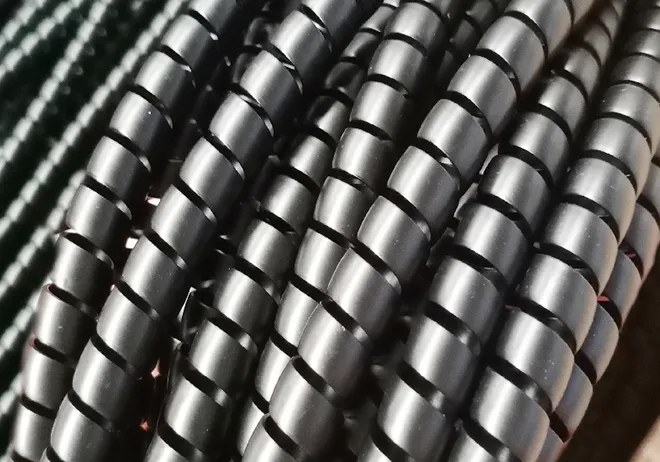Guidelines for the Use of Electronic Vehicle Data Protocols in Automotive Industry
Understanding SAE J2064 A Comprehensive Overview
SAE J2064, a standard developed by the Society of Automotive Engineers (SAE), pertains to the performance and specifications of automotive refrigerant hoses and fittings. This standard plays a crucial role in ensuring the safety, efficiency, and reliability of air conditioning systems in vehicles by providing guidelines for the materials, construction methods, and performance requirements of these key components. As automotive technology continues to evolve, understanding and adhering to standards like SAE J2064 becomes increasingly important for manufacturers, technicians, and consumers alike.
The Importance of SAE J2064
Automotive air conditioning systems are essential for passenger comfort, especially in warmer climates. The refrigerant hoses and fittings are responsible for transporting refrigerant between the various components of the air conditioning system. If these parts fail, it can lead to refrigerant leaks, which not only compromise the system's efficiency but also pose environmental hazards due to the release of harmful substances.
SAE J2064 outlines the necessary characteristics of refrigerant hoses and fittings used in automotive applications. This includes the materials that should be utilized, such as rubber or plastic compounds that can withstand the high pressures and varying temperatures typical of automotive environments. Additionally, the standard dictates testing methods to ensure that hoses and fittings can endure prolonged exposure to refrigerants, oils, and other automotive fluids without degradation.
Key Specifications and Testing Protocols
Understanding SAE J2064 A Comprehensive Overview
Testing protocols outlined in SAE J2064 include resistance to permeation, where hoses are evaluated for their ability to prevent refrigerant loss over time. This is critical for maintaining system efficiency and reducing environmental impact. Hoses must also undergo burst testing to ensure that they can withstand extreme pressures without failing. Furthermore, the standard emphasizes the importance of long-term durability testing, simulating years of real-world use to validate performance under typical automotive conditions.
sae j2064

Implications for Manufacturers and Technicians
For manufacturers, adherence to SAE J2064 not only helps ensure compliance with regulatory standards but also enhances product quality and reliability. By following the guidelines laid out in this standard, manufacturers can reduce the likelihood of defects and product failures, which in turn minimizes warranty claims and enhances their reputation in the market.
For automotive technicians, familiarity with SAE J2064 is vital when servicing vehicles. Understanding the specifications of the hoses and fittings being used allows technicians to identify the right replacements when repairs are necessary. It also helps them recognize when existing components may not meet current safety or efficiency standards, prompting timely upgrades or replacements to ensure optimal vehicle performance.
Environmental Considerations
In recent years, the automotive industry has faced increasing pressure to reduce its environmental impact. The refrigerants used in air conditioning systems are often potent greenhouse gases, and leaks can contribute significantly to global warming. By following standards like SAE J2064, manufacturers can produce more reliable components that minimize refrigerant loss, thus playing a role in broader sustainability efforts within the industry.
Moreover, as the push for more environmentally friendly refrigerants continues, the adaptability of hoses and fittings specified in SAE J2064 will be of utmost importance. The industry must remain vigilant in updating standards to accommodate new substances and technologies that emerge as part of the transition toward greener automotive solutions.
Conclusion
In conclusion, SAE J2064 serves as a critical framework for the automotive industry, setting forth essential guidelines for the design and performance of refrigerant hoses and fittings. Its significance extends beyond regulatory compliance; it fosters innovation, enhances safety, and supports environmental stewardship. Both manufacturers and technicians must prioritize adherence to this standard to ensure that air conditioning systems in vehicles function effectively, safely, and with minimal environmental impact. As our understanding of automotive technologies grows, so too will the relevance of standards like SAE J2064 in shaping a more efficient, sustainable future for the automotive sector.
-
Ultimate Spiral Protection for Hoses & CablesNewsJun.26,2025
-
The Ultimate Quick-Connect Solutions for Every NeedNewsJun.26,2025
-
SAE J1401 Brake Hose: Reliable Choice for Safe BrakingNewsJun.26,2025
-
Reliable J2064 A/C Hoses for Real-World Cooling NeedsNewsJun.26,2025
-
Heavy-Duty Sewer Jetting Hoses Built to LastNewsJun.26,2025
-
Fix Power Steering Tube Leaks Fast – Durable & Affordable SolutionNewsJun.26,2025

